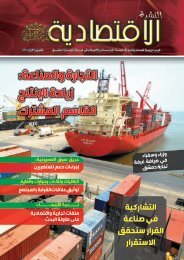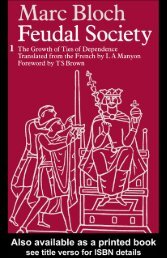SIGAR
2017-01-30qr
2017-01-30qr
Create successful ePaper yourself
Turn your PDF publications into a flip-book with our unique Google optimized e-Paper software.
GOVERNANCE<br />
GOVERNANCE<br />
KEY ISSUES AND EVENTS<br />
This quarter, the Afghan national government faced tensions within the<br />
executive branch over the actions of First Vice President Abdul Rashid<br />
Dostum and conflict between the executive and parliament over the dismissal<br />
of seven government ministers.<br />
In October, First Vice President Dostum publicly accused President<br />
Ashraf Ghani and Chief Executive Abdullah Abdullah of nepotism and ethnic<br />
bias in government appointments. Both Ghani’s and Abdullah’s offices<br />
condemned Dostum’s statement. 386<br />
On November 24, Dostum reportedly kidnapped a political rival, a<br />
former governor of Jowzjan Province. Once released, the victim accused<br />
Dostum on national television of ordering him to be beaten and raped with<br />
the muzzle of a rifle while in Dostum’s private custody. 387 The U.S. Embassy<br />
and the European Union called for an investigation. 388 On December 17,<br />
the Afghan attorney general’s office announced it was investigating the<br />
matter. 389 As of December 22, Dostum refused an attorney-general summons.<br />
Claiming the first vice president has the same legal standing as<br />
the president, Dostum’s chief of staff labeled the summons illegal, arguing<br />
that allegations of crimes against the president can only be made<br />
by a two-thirds vote by parliament. 390 Chief Executive Abdullah’s office<br />
called the handling of the Dostum investigation a significant test for the<br />
unity government. 391<br />
Between November 12 and 15, the lower house of parliament passed noconfidence<br />
votes against seven of 16 ministers after they were summoned<br />
to explain why their ministries executed less than 70% of their development<br />
budgets (projects and investments are funded from a ministry’s development<br />
budget). Four of the seven ministers sanctioned by parliament<br />
were Ghani nominees, while the remaining three had been nominated by<br />
Abdullah. Parliament considers those who received votes of no confidence<br />
dismissed. The Minister of Foreign Affairs, an Abdullah nominee and head<br />
of a major political party that backed Abdullah in the presidential election,<br />
was among those who received a vote of no confidence; however, the<br />
Ministry of Foreign Affairs insists it spent 73% of its development budget. 392<br />
REPORT TO THE UNITED STATES CONGRESS I JANUARY 30, 2017<br />
119







